
Past Award Winners
Please use the filters below to view the recipients from a specific year
Janet Thornton
Janet Thornton
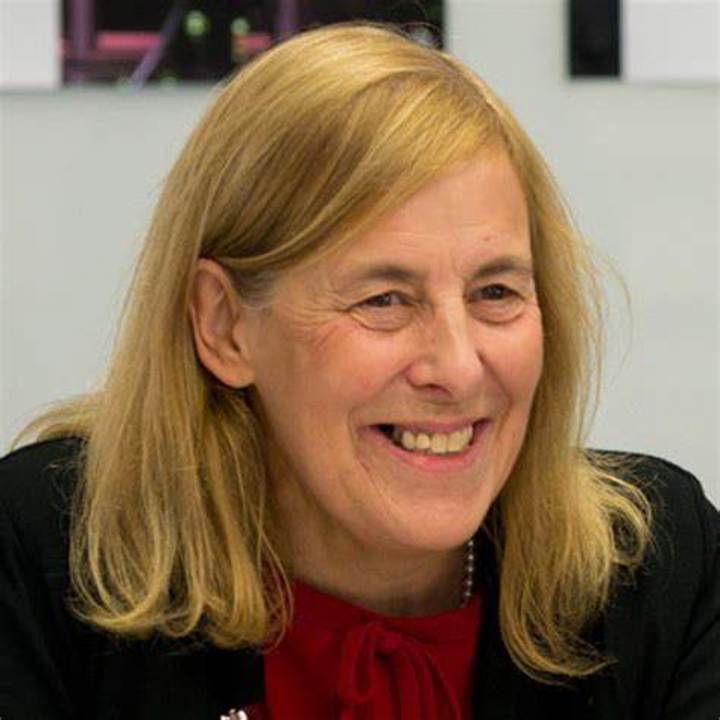
The 2021 Biochemical Society Award was presented to Professor Dame Janet Thornton at the European Bioinformatics Institute, Cambridge, UK. Janet is a Senior Research Scientist at the European Molecular Biology Laboratory – European Bioinformatics Institute on the Wellcome Trust Genome Campus at Cambridge, UK. She was Director of the Institute from 2001-2015 and is currently the ERC’s Vice President for Life Sciences. Janet’s research is focused on proteins, especially their structure, function and evolution. She is a computational biologist, working at the interface of biology with physics, chemistry, and computing. This includes a detailed analysis of enzyme biocatalysts, their mechanisms and the evolution of new catalytic functions; the impacts of genetic variation on protein structure and function and studies on the molecular basis of ageing.
Janet Thornton presented her award lecture ‘Computational enzymology, structure function and evolution of enzymes’ as part of the Biochemistry Focus webinar series. View the recording.
On winning the Biochemical Society Award, Janet said: “I am delighted to be chosen for this Biochemical Society Award for computational methods leading to advancing the understanding of biomolecular sciences. This is a real honour for me – and for all the people with whom I have worked. For me to see, to understand and to be inspired by the beauty of protein structures and their incredibly complex biology has been a real pleasure. To be recognised by the Biochemical Society adds much to that pleasure.”
Kim Nasmyth
Kim Nasmyth

The 2021 Centenary Award will be presented to Professor Kim Nasmyth at the University of Oxford, UK. Kim currently holds the Whitley Chair at the Department of Biochemistry, University of Oxford and is a fellow of Trinity College. After completing his PhD in the late 1970s, he has been a Robertson Research Fellow at Cold Spring Harbor, and a member of staff at the MRC laboratory for molecular biology in Cambridge. Kim later moved to the Research Institute of Molecular Pathology in Vienna, where he was a Senior Scientist from 1988–1997 and Director from 1997–2006. His scientific work has addressed the mechanisms by which genes are turned on and off during development, how DNA replication is controlled, and how chromosomes are segregated during mitosis and meiosis.
On winning the Centenary Award, Kim said: “I must confess that I never trained as a biochemist. I had planned to read chemistry but changed to biology shortly after arriving at university and eventually became a molecular geneticist. Ever since, I have always strived to explain biological phenomena in terms as simple as possible. Partly by chance and partly by inclination, I have spent much of my research career attempting to understand the propagation of chromosomes during cell division, a biochemical process unique to living systems. This required molecular genetics to identify the key players, such as cohesin, but now requires biochemistry and biophysics to understand its mode of action. There are times now when I regret abandoning chemistry so early in my career, but if I had not, I would never have discovered cohesin or had the privilege to be one of the first people to study its remarkable enzymology. As a molecular geneticist, I am therefore especially honoured to have been recognized by the Biochemical Society’s Centenary Award as an honorary biochemist.”
Kim presented his Award Lecture at Genome organisation by SMC complexes on 29 September 2022.
Giulia Zanetti
Giulia Zanetti
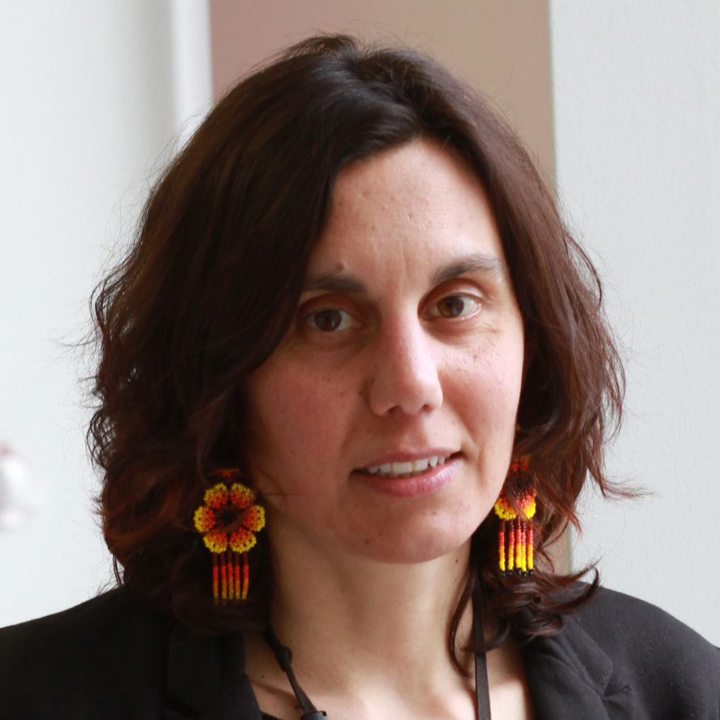
The 2021 Colworth Medal will be presented to Dr Giulia Zanetti of Birkbeck University of London, UK. After undergraduate studies in Italy and Australia, Giulia completed her PhD in Oxford (2004-2009), working on cryo-tomography studies of viral glycoproteins. After a postdoc at the University of California, Berkeley, she joined the Institute of Structural and Molecular Biology (ISMB) at Birkbeck College in London. In 2014 Giulia was awarded a Dorothy Hodgkin Royal Society fellowship, which kick-started her lab. Currently her group is pushing the boundaries of cryo-tomography to understand mechanisms of complex membrane trafficking processes. Integration with biochemical techniques and collaboration with labs who use complementary approaches is helping to understand how the COPII coat remodels membrane and how this process is regulated.
On winning the Colworth Medal, Giulia said: “It’s a tremendous honour to receive the Colworth Medal, and I’d like to share it with many fantastic collaborators, students and postdocs I was lucky to meet during my career. The award recognizes curiosity-driven studies on fundamental aspects of cell and molecular biology and this gives me the enthusiasm to continue along this path.”
Giulia presented her Award Lecture at Dynamic Cell IV on 17 March 2021.
Read Giulia's article published in the Biochemical Journal - Current data processing strategies for cryo-electron tomography and subtomogram averaging
Kirsty Wan
Kirsty Wan
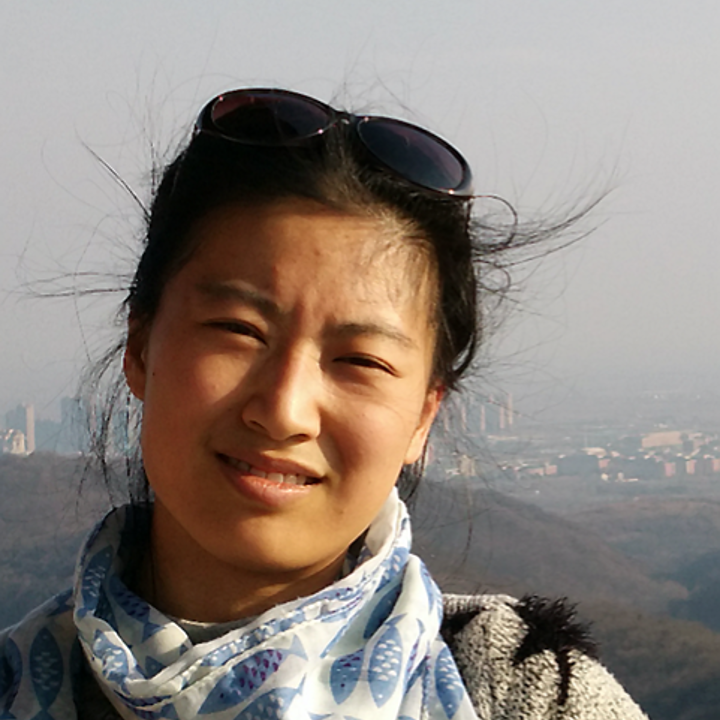
The 2021 Early Career Research Award was presented to Dr Kirsty Wan at the University of Exeter, UK. Kirsty is a Senior Research Fellow and group leader at the Living Systems Institute (LSI), University of Exeter. Her main research interests concern the motile behaviour and dynamics of microorganisms, with emphasis on exploring novel interdisciplinary approaches. She obtained her undergraduate (mathematics) and PhD degrees (biological physics) from the University of Cambridge, UK, where she was also awarded a Nevile Research Fellowship from Magdalene College (2014-2017) for her postdoctoral work. In 2019, Kirsty was the recipient of an ERC Starting Grant to begin a major new project on single-cell cognition.
On receiving the Early Career Research Award, Kirsty said: “I am absolutely delighted with this news! It is a real pleasure to have been given this award from the Biochemical Society. This is further justification for the value of interdisciplinary research – something that was instilled in me early on by my mentors. I take this opportunity to thank my PhD (and postdoc!) supervisor Professor Ray Goldstein who has been a constant source of inspiration throughout my career. I am also extremely grateful to my colleagues at Exeter for making and shaping the LSI and cultivating a unique and stimulating working environment. I look forward to the many scientific discoveries that we will continue to make together."
Kirsty presented her Award lecture at the Online ‘Dynamic Cell IV’ conference on 14-19 March 2021.
Roser Vento-Tormo
Roser Vento-Tormo
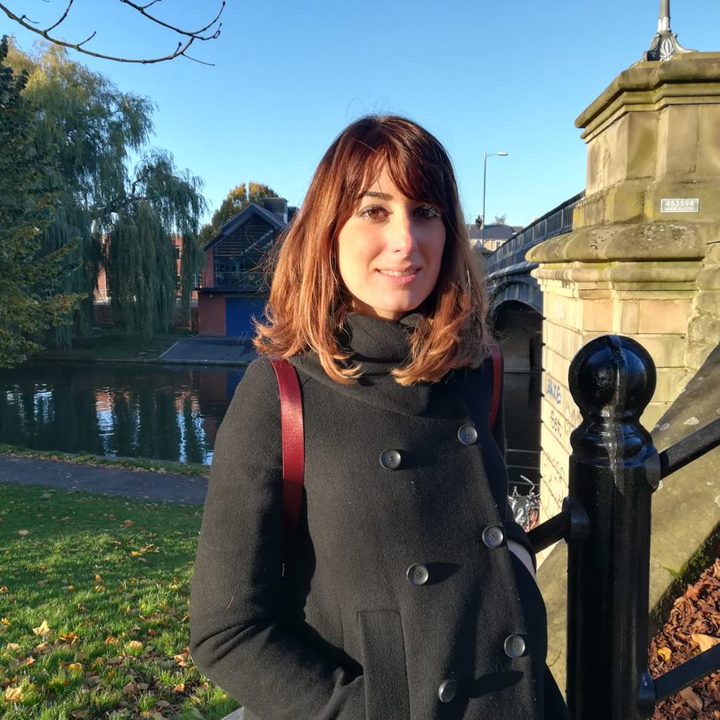
The 2021 Early Career Research Award will be presented to Dr Roser Vento-Tormo at the Wellcome Sanger Institute, Cambridge, UK. She completed her postdoctoral studies under the supervision of Professor Sarah Teichmann as an EMBO and HFSP fellow. Here she developed CellPhoneDB, a unique resource of ligands, receptors and their interactions, integrated with a statistical framework to build cellular communication networks from single-cell transcriptomics data. Roser has used this cutting-edge computational framework to study maternal-fetal communication during early pregnancy in humans. More broadly, CellPhoneDB has also been key to identifying cell-cell interactions mediating fundamental biological processes including hematopoiesis and the tumour microenvironment.
Roser Vento-Tormo presented her award lecture ‘Mapping development and regeneration in vivo and in vitro’ as part of the Biochemistry Focus webinar series. View the recording.
On winning the Early Career Research Award, Roser said: “I am thrilled to receive the Early Career Research Award by the Biochemical Society, which recognises the work of my superb team and collaborators. Together, we combine computational and experimental expertise to define novel cell identities, their regulation and functional role in health and disease. I would also like to take this opportunity to thank my nominators and mentors for their support during the early stages of my career as an independent investigator.”
Brandt Eichman
Brandt Eichman

The 2021 International Award was presented to Professor Brandt Eichman at the Vanderbilt University, USA. Brandt completed his PhD in biochemistry and biophysics from Oregon State University under the mentorship of P. Shing Ho. As a graduate student, he used X-ray crystallography to study the effects of anti-cancer drugs on DNA structure and determined the landmark structure of the Holliday Junction—the four-stranded DNA intermediate formed during genetic recombination. As an NIH postdoctoral fellow at Harvard Medical School with Tom Ellenberger, he has honed his interests toward the structural enzymology of DNA repair and replication proteins. Since joining the faculty at Vanderbilt University in 2004, Brandt and his laboratory continue to focus on the structural biology of protein machines involved in DNA repair and maintenance of genome integrity.
Brandt Eichmann presented his award lecture at the 86th Harden conference ‘Machines on Genes‘ on Wednesday 25 May 2022 in Alicante, Spain.
On winning the International Award, Brandt said: “I am honoured and delighted to be the recipient of the Biochemical Society’s International Award. This certainly would not have been possible without the hard work and creativity of the members of my laboratory. I thank my colleagues who made and endorsed the nomination and who have guided me over the years, and my family for their support and encouragement. This award will help maintain momentum within my research team, so that we may continue to approach what we feel are important and interesting questions related to genome maintenance.”
Rosemary Clyne
Rosemary Clyne
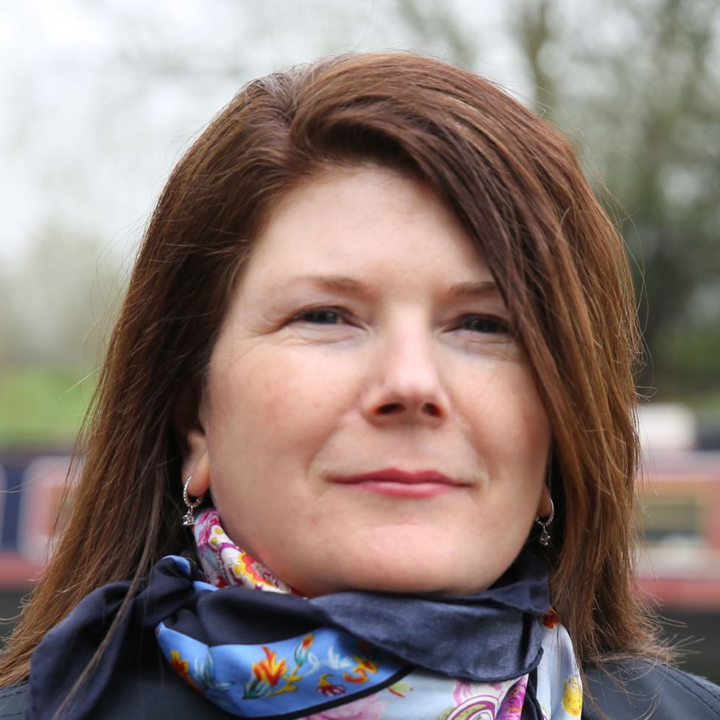
The 2021 Teaching Excellence Award was presented to Dr Rosemary Clyne at Queen Mary University of London, UK. Rosemary earned her PhD at the Johns Hopkins University School of Medicine working with Professor Thomas Kelly, and conducted postdoctoral work as a Damon Runyon-Walter Winchell Fellow at the Research Institute of Molecular Pathology in Vienna, with Professor Kim Nasmyth, in the field of chromosome dynamics and cell cycle regulation. She is currently Senior Lecturer at Queen Mary and the university’s Academic Lead for International Student Experience, where she founded the Future Global Leaders Forum student leadership programme. Rosemary is a Senior Fellow of the Higher Education Academy and the recipient of two Queen Mary Education Excellence Awards.
Rosemary presented her award lecture ‘Fostering Laboratory, Enquiry and Cross-Disciplinary Skills: A Digital Journey’ on Wednesday 27 April as part of the Biochemistry Focus Webinar Series.
On winning the Teaching Excellence Award, Rosemary said: “I am absolutely thrilled to receive this distinguished award from the Biochemical Society. For me this Award recognises my inclusive approach toward delivering the best possible learning experience for all students. I have championed the potential of technology to elevate learning and improve confidence toward experimental work. I am grateful to Queen Mary for supporting the digital learning and outreach projects that have enabled me to communicate my enthusiasm and passion for science education so widely. I share this honor with all the fantastic students who have inspired my work.”
Erik A. Richter
Erik A. Richter

The 2021 Sir Philip Randle Award was presented to Professor Erik Richter at the University of Copenhagen, Denmark. Erik’s research is focused on regulation of muscle metabolism in connection with physical activity. A major breakthrough was the original observation that a single bout of exercise increases muscle insulin sensitivity for many hours following exercise; published in 1982.
Since then he has followed up this finding and his lab was the first to describe the effect of insulin on molecular signaling in human muscle in the resting and in the post-exercise state. In multiple publications over the years, he and collaborators were the first to describe that the GTPAse TBC1D4 is differentially phosphorylated by insulin in resting and post-exercise muscle. Lately the important role of microvascular perfusion for the increase in insulin sensitivity following exercise has also been described. Another major research line has been to characterize the molecular signaling during exercise and its effect on muscle metabolism.
Erik presented his Award lecture on Thursday 17 March as part of the Biochemistry Focus webinar series. View the recording.
On winning the Sir Philip Randle Award, Erik said: “It is a huge honor for me to be receiving this award which bears the name of one of the great pioneers in metabolism. Thanks to all the excellent collaborators during the many years of exciting research.”
Pamela Williams
Pamela Williams
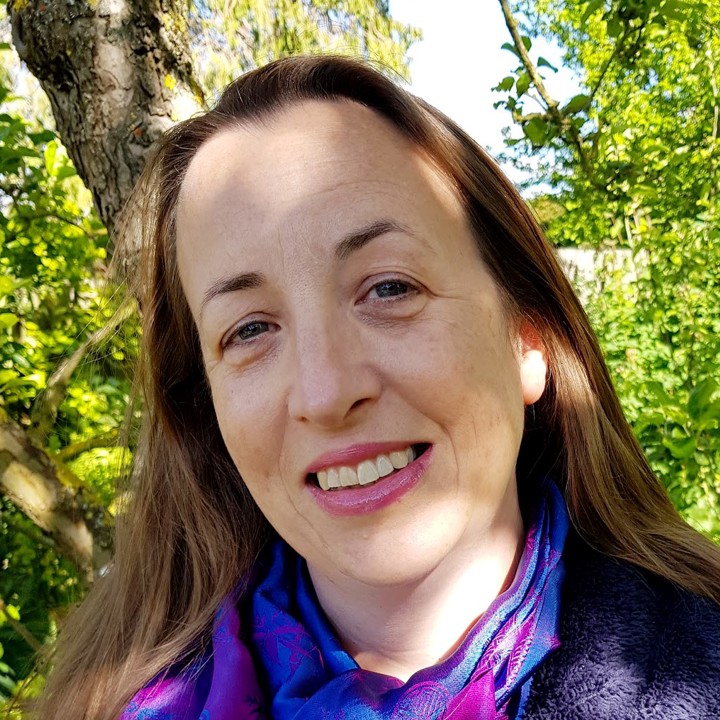
The 2021 Industry and Academic Collaboration Award was presented to Dr Pamela Williams at Astex Pharmaceuticals, Cambridge, UK. She has a DPhil in Molecular Biophysics from Oxford University and is a Senior Director in the Molecular Sciences Group at Astex Pharmaceuticals. Pamela’s current focus is on the integration of cryoEM structure determination into the drug discovery process, building upon her interest in structure-based drug discovery technologies. Before joining Astex Pharmaceuticals, she was a postdoctoral research associate at the Scripps Research Institute, La Jolla, where her work focused on the X-ray structure determination of metalloenzymes involved in electron transfer and xenobiotic metabolism.
On winning the Industry and Academic Collaboration Award, Pamela said: “The recognition of industrial scientists at all levels and stages of their careers is a positive message. I’m delighted that this award rightly highlights the significant impact collaborations between academic and industrial groups can have on pushing forward the frontiers of science.”
Pamela presented her Award lecture at Key aspects of modern drug discovery 2023 on 6 November 2023.
Bart Vanhaesebroeck
Bart Vanhaesebroeck

The 2021 Portland Press Excellence in Science Award was presented to Professor Bart Vanhaesebroeck at the University College London, UK. Bart is a basic scientist whose pioneering studies on the PI 3-kinase (PI3K) signalling enzymes have led to approved medicines. With his team, he developed a unique genetic approach to create an unparalleled series of mouse models to uncover the roles of multiple PI3K family members in biology, and to faithfully predict PI3K-inhibitor activity at the organismal level. He discovered PI3Kdelta which he took from gene cloning and preclinical modelling to the generation of PI3Kdelta-inhibitors and the development of clinical strategies to inhibit this PI3K. These studies underpinned the approval of PI3Kdelta-inhibitors for leukaemia and their emerging use in cancer immunotherapy of solid tumours.
On winning the Portland Press Excellence in Science Award, Bart said: “I am delighted to receive this award. Science is a team effort, and this award is an honour to all the talented people who have worked with me over the years.”
Bart presented his Award lecture at the ‘88th Harden: Kinases and pseudokinases’ conference on 8-11 May 2022.
